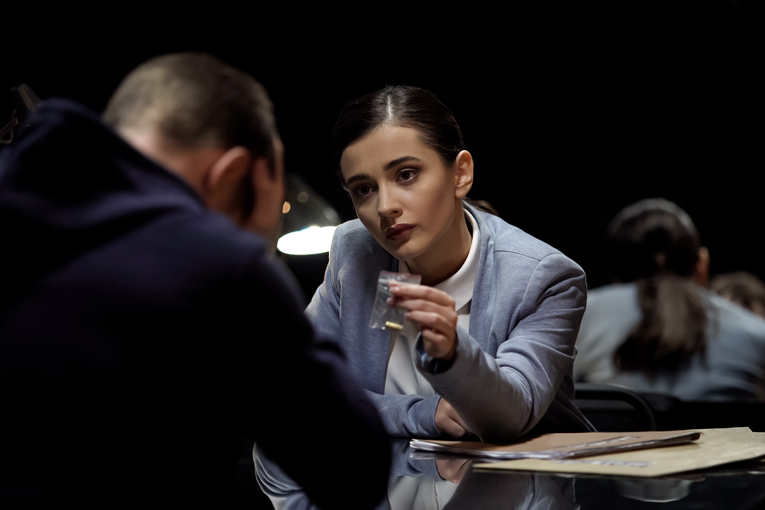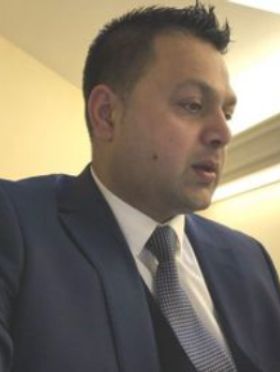Do you need a solicitor when being questioned by the police?

Being questioned by police can be intimidating, whether you’re a witness, suspect, or attending voluntarily. Your choices during this time can have lasting legal consequences. Having a solicitor isn’t mandatory, but knowing your rights and the risks of proceeding without representation is critical. Free, expert legal advice is available 24/7 at police stations. You can also instantly connect with experienced criminal defence solicitors via Qredible.

Key Takeaway: What’s an important thing to remember before speaking to the police?
Don’t leave your rights to chance. Read on to learn why having a solicitor present during police questioning can safeguard your future.
Your legal rights during police questioning
Once you’re in a police interview room, every word you say may later be used as evidence. To ensure fair treatment, the Police and Criminal Evidence Act (PACE) grants you several key rights:
- The right to medical attention if needed.
- The right to refreshments and toilet breaks.
- The right to view the police codes of practice.
- The right to free legal representation at any time.
- The right to have someone informed of your detention.
- The right to an interpreter if English is not your first language.
- The right to remain silent (you can respond with “No comment”).
When should you get a solicitor during police contact?
Having a solicitor present ensures that your rights are protected from the earliest moment of police contact. You should get legal representation in these specific scenarios:
- When giving a witness statement.
- During identification or search procedures.
- Involvement in road traffic incidents or accidents.
- Before accepting a caution or other legal warning.
- Immediately upon arrest or when returning on bail.
- If interviewed under caution at your place of work.
- When contacted regarding any criminal investigation.
- Before attending a voluntary interview at the police station.
The consequences of refusing legal representation
Attending a police interview without a solicitor exposes you to several risks, both immediate and long-term, that could severely impact your case.
Immediate risks:
Without legal representation, the following dangers can arise during the initial police interview:
- Misinterpretation of your statements: Without a solicitor, even innocent remarks can be twisted or used against you, potentially leading to unintended self-incrimination.
- Unchallenged procedural violations: Police interviews must follow strict legal procedures. Without legal representation, procedural errors such as improper questioning or the withholding of evidence may go unnoticed and unchallenged.
- Unprotected legal rights: Many people are unaware of their full rights during police interviews. Without a solicitor, you risk having these rights overlooked, leading to self-damaging outcomes.
- Increased pressure: Police questioning can be intimidating. Without a solicitor’s guidance, pressure and confusion might lead you to give answers that could weaken your position.
- Missed defences: Solicitors often spot crucial legal defences or mitigating factors early on. By attending an interview without one, you risk missing early opportunities to strengthen your case.
Long-term consequences:
The effects of refusing legal representation don’t stop after the interview. Here’s how it can impact your case in the long run:
- Complex court proceedings: If procedural errors or damaging statements go unaddressed during the police interview, they can make court proceedings far more complex and challenging to navigate.
- Limited defence strategies: Decisions made during your interview can limit your defence options later in the case, restricting your solicitor’s ability to build an effective defence.
- Irreversible early mistakes: Once you’ve made statements without legal advice, correcting or clarifying them later becomes difficult, as the prosecution may use them against you in court.
- Prosecution leverage: Any missteps in your interview can give the prosecution an early advantage, increasing the likelihood of a stronger case against you.
- Increased legal costs: Mistakes made during the police interview stage can lead to drawn-out legal battles, raising your overall legal expenses as your solicitor has to work harder to address early errors.
The importance of legal representation
Police interviews are complex, and even honest or innocent statements can harm your defence if taken out of context. A solicitor provides expert guidance throughout the process and serves as a vital layer of protection against potential missteps.
Here’s why legal representation is crucial:
- Preventing self-incrimination: A solicitor ensures that you don’t unintentionally make statements that can be used against you later.
- Understanding your rights: Most people are unfamiliar with the nuances of criminal law, but a solicitor can explain your rights in detail, ensuring you’re fully aware of your options before you say anything.
- Avoiding manipulation: Police may use various strategies during questioning, including suggesting guilt through misleading or loaded questions. A solicitor helps to challenge and prevent these tactics.
- Ensuring procedural fairness: Police must follow strict protocols, and your solicitor is there to make sure these are upheld. This includes everything from ensuring you’re allowed adequate breaks to making sure any evidence is properly disclosed to you.
- Knowing when to speak and when to remain silent: An experienced solicitor will advise you on which questions to answer and when it’s best to remain silent, based on the evidence available and the police’s approach.
- Strategizing your defence early: The interview stage is just the beginning of building a defence. A solicitor will take detailed notes, analyse the evidence, and start preparing a defence strategy from the moment you’re questioned.
FAQs
- Can the police question me without a solicitor? While police must inform you of your right to free legal advice, they can question you if you explicitly decline this right. You can change your mind at any point, and the interview must stop until your solicitor arrives.
- Will asking for a solicitor make me look guilty? Absolutely not. Requesting a solicitor is a legal right exercised by both innocent and guilty people. Police and courts cannot view this negatively.
- What if I’ve already started talking to the police? You can stop the interview at any time to request a solicitor. Previous statements can be clarified with legal guidance, and the interview must pause until your solicitor arrives. Your right to legal advice never expires.
Having a solicitor during police questioning is crucial to protecting your rights and preventing costly mistakes. Don’t face the risks alone—legal representation ensures you’re safeguarded at every stage, from the initial interview to potential court proceedings.
Need legal support during police questioning?
Qredible connects you with experienced criminal defence solicitors, ensuring expert guidance to protect your rights and safeguard your future at every step.
KEY TAKEAWAYS
- You have the right to free legal advice at any point during police questioning, and using this right protects your legal position.
- Early legal representation minimizes the risk of procedural violations and damaging statements during the interview.
- Without a solicitor, both immediate risks and long-term consequences—like complex court proceedings and limited defence strategies—can arise.
Do you need a solicitor?
Find a solicitor on Qredible in just a few easy steps
















